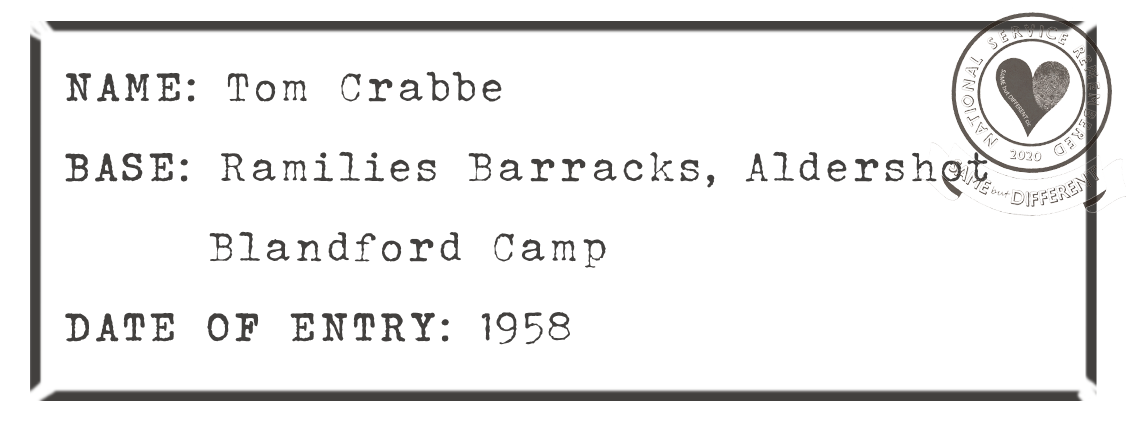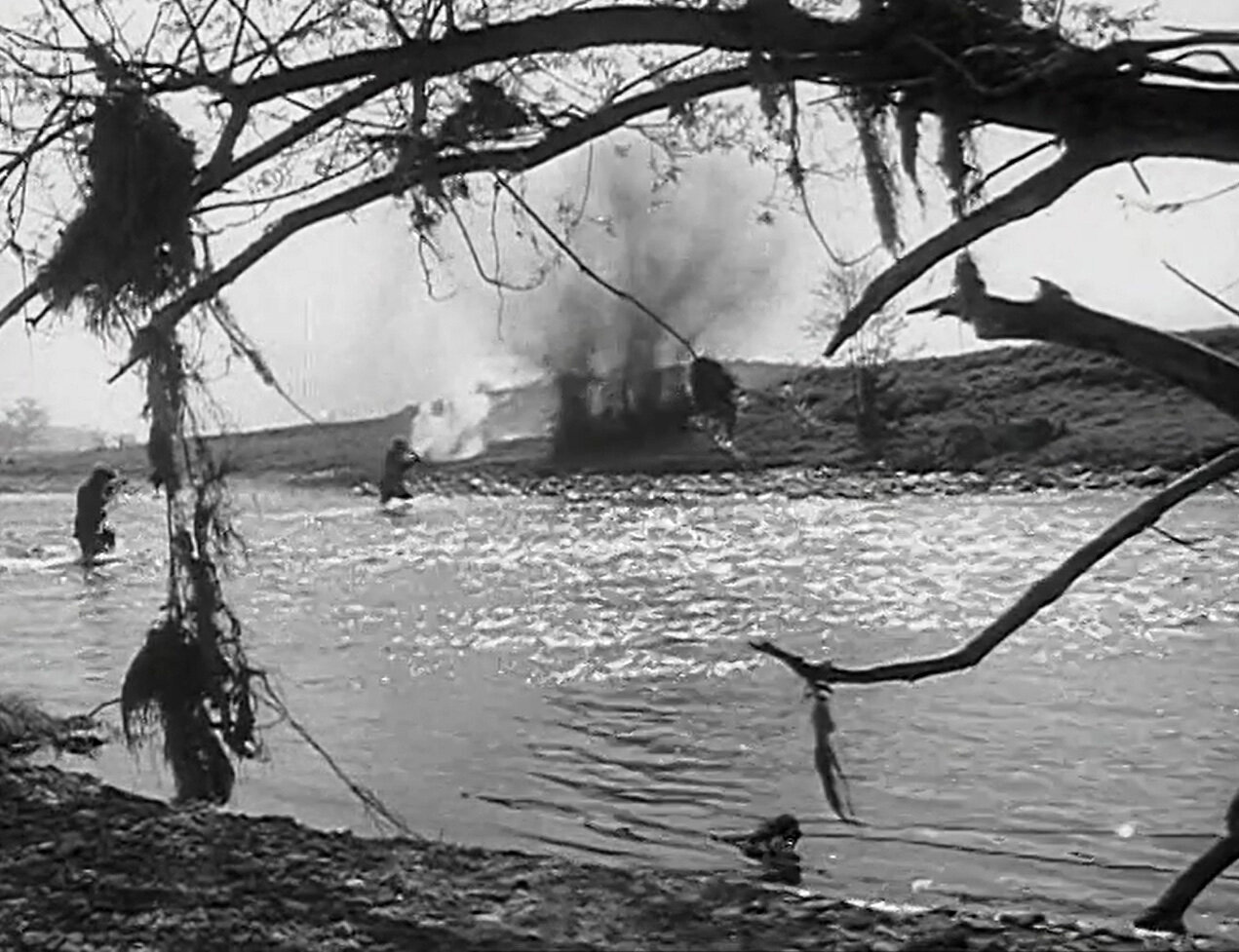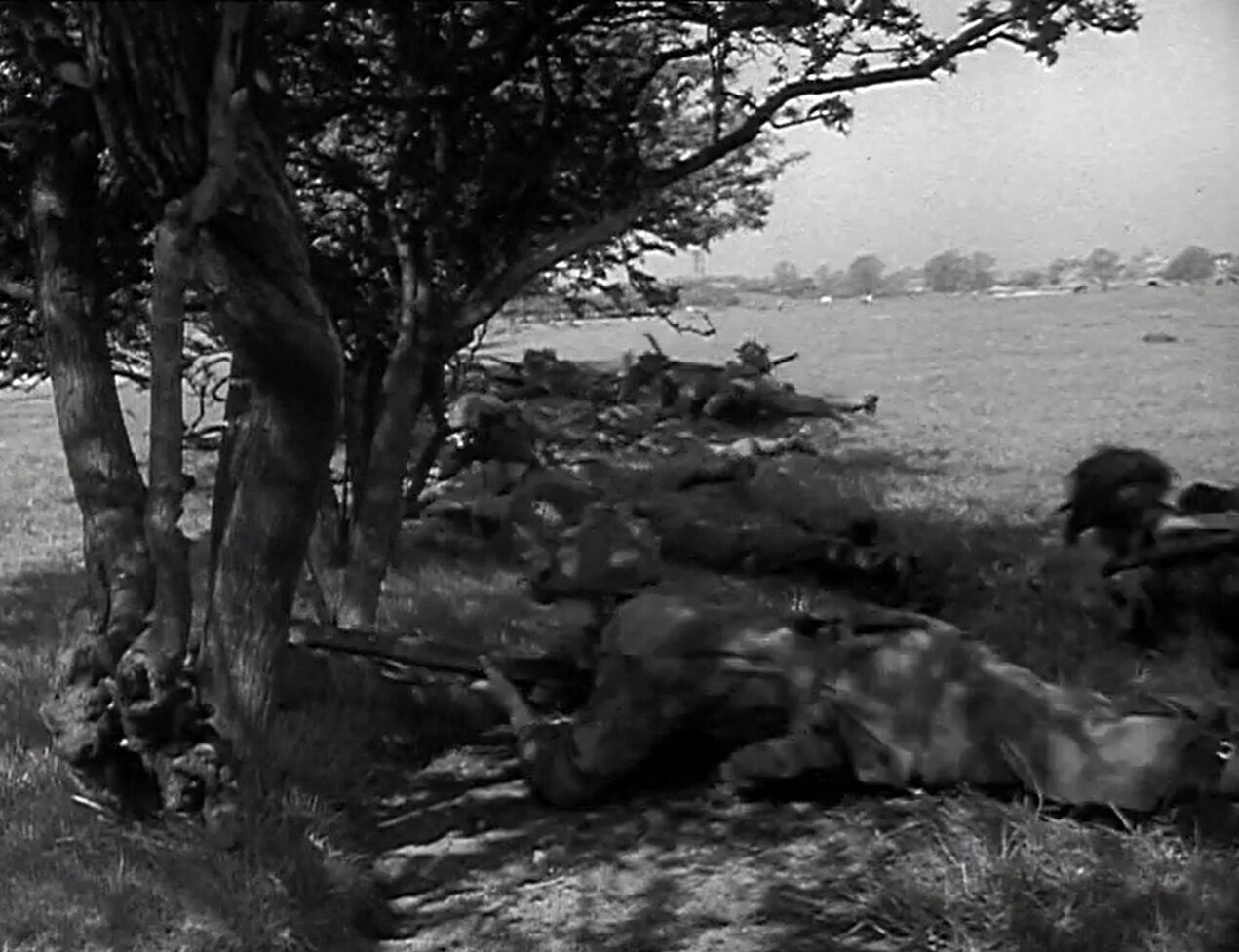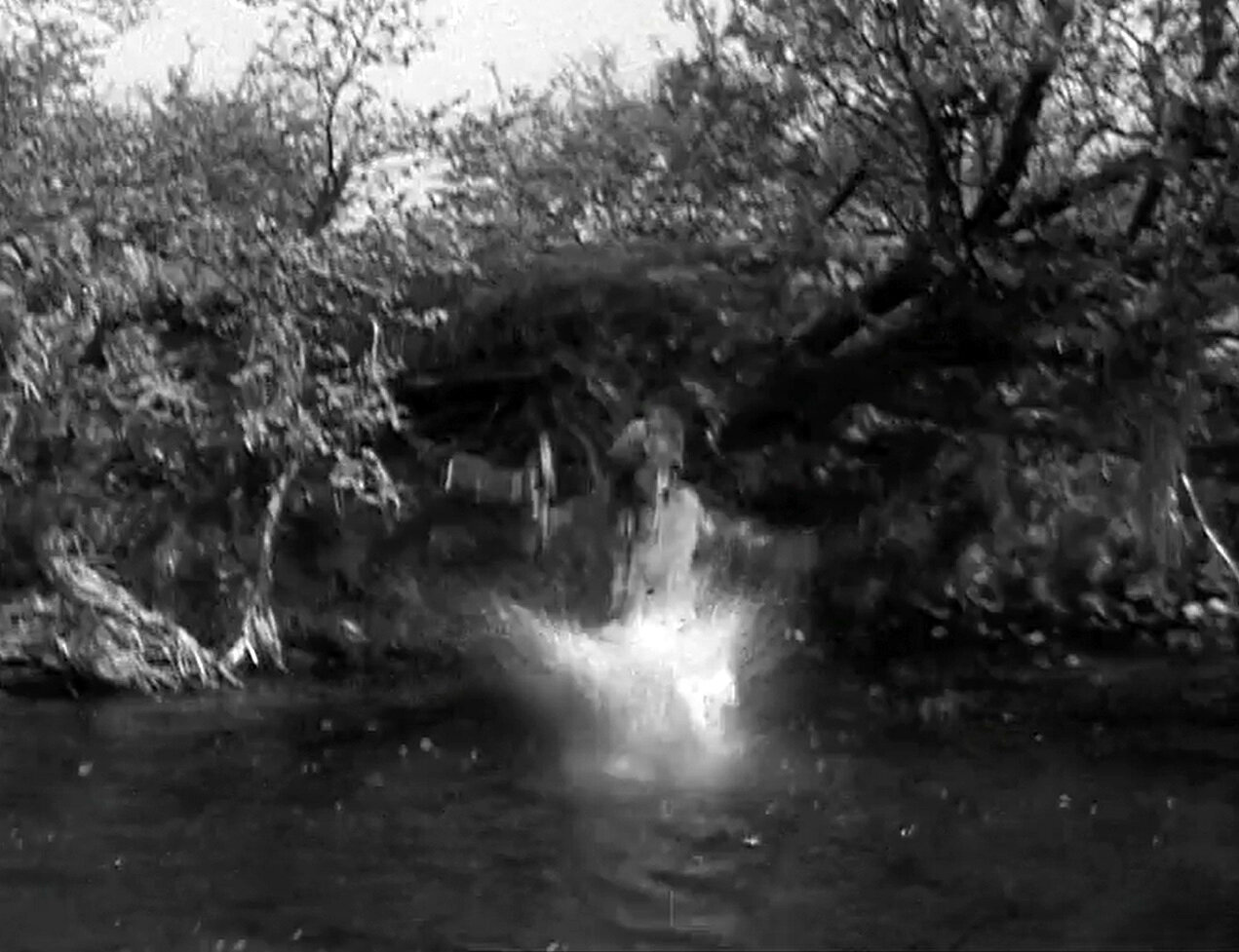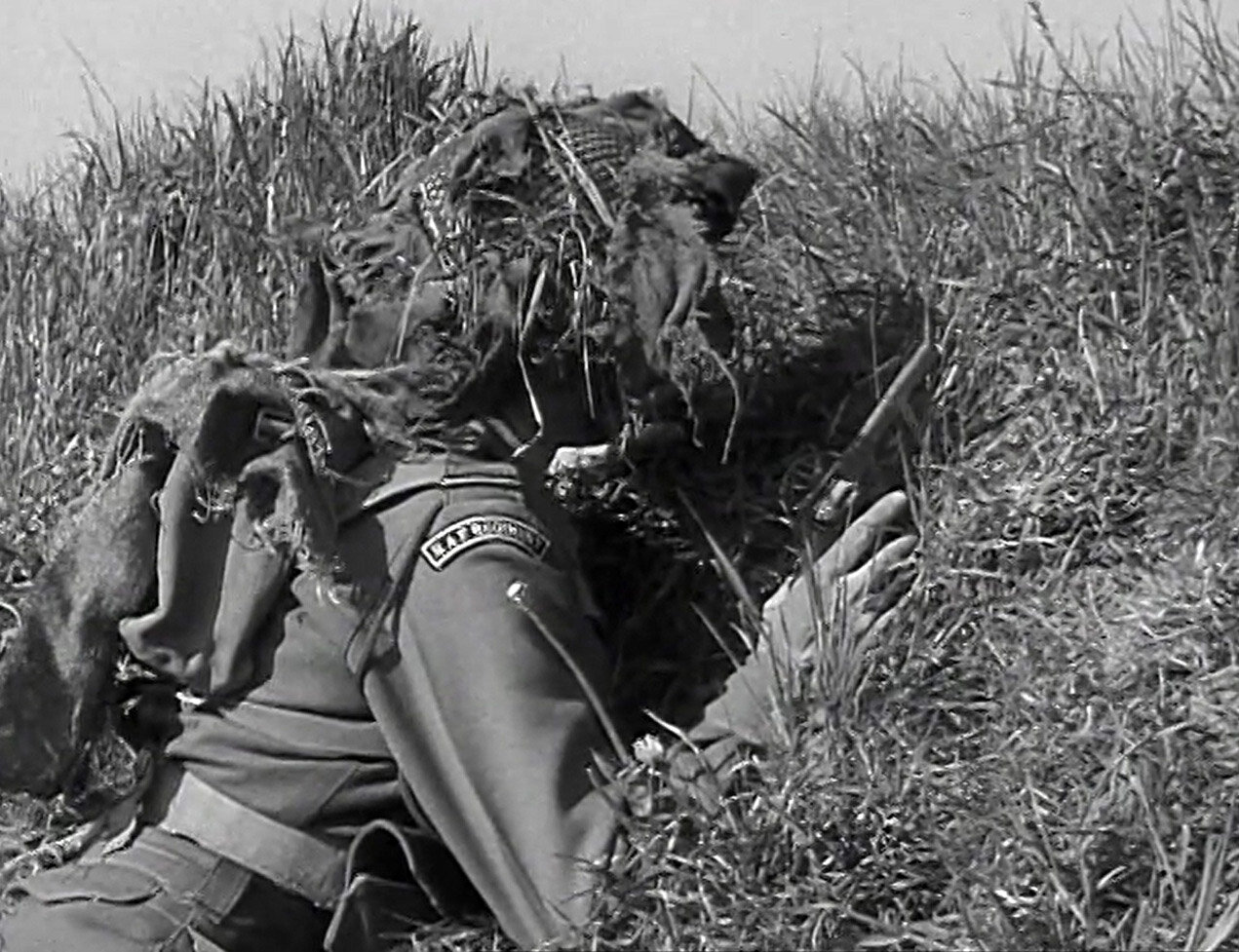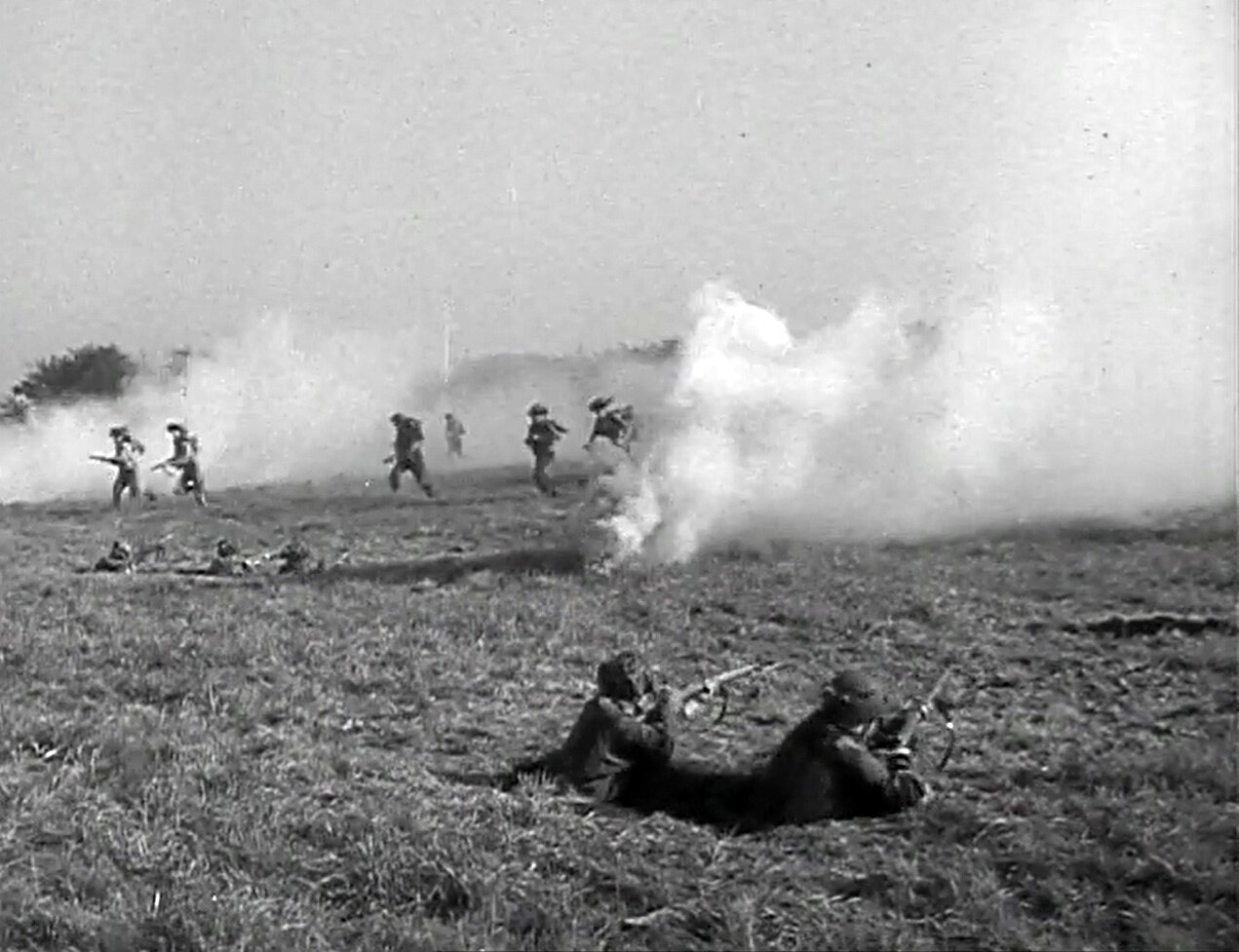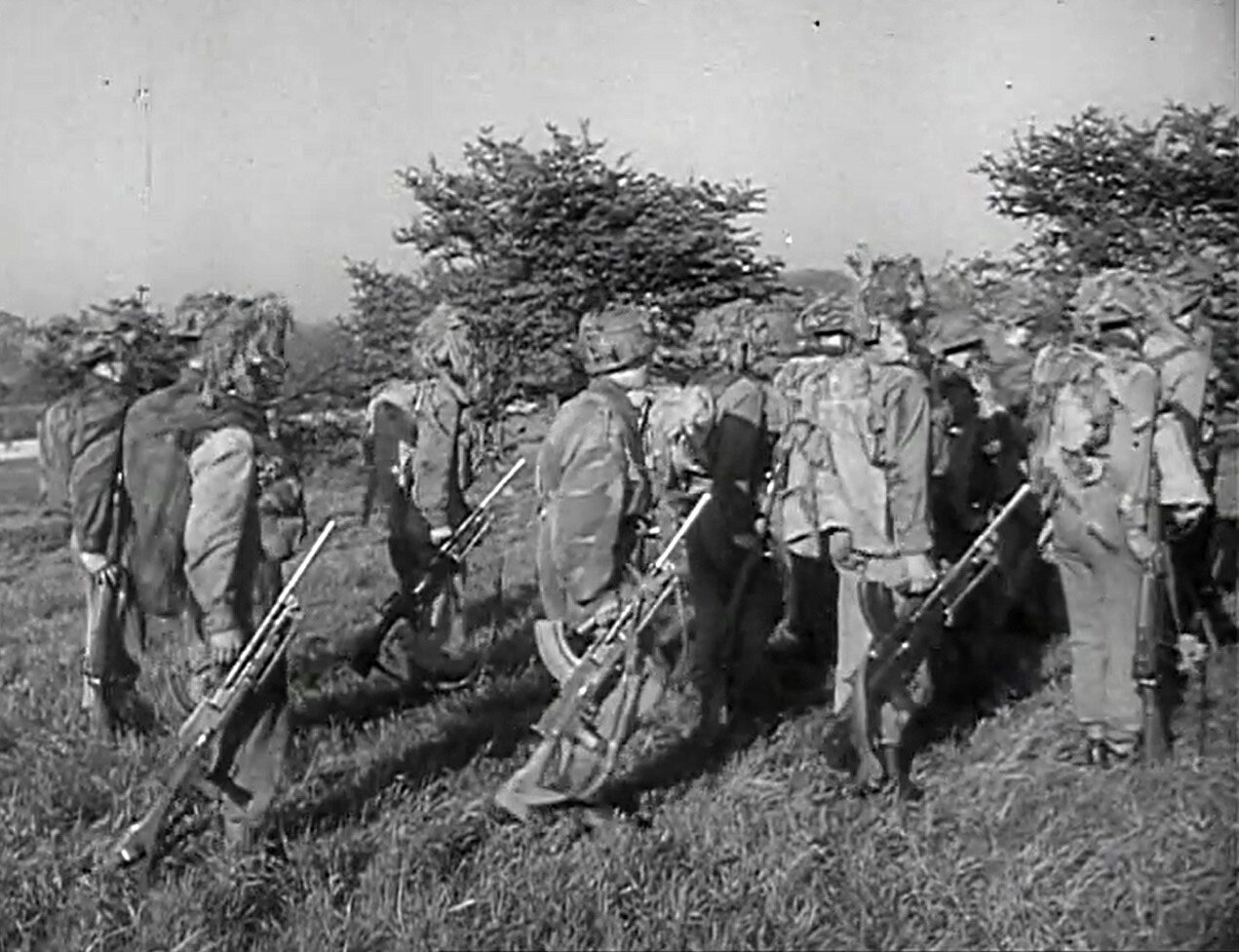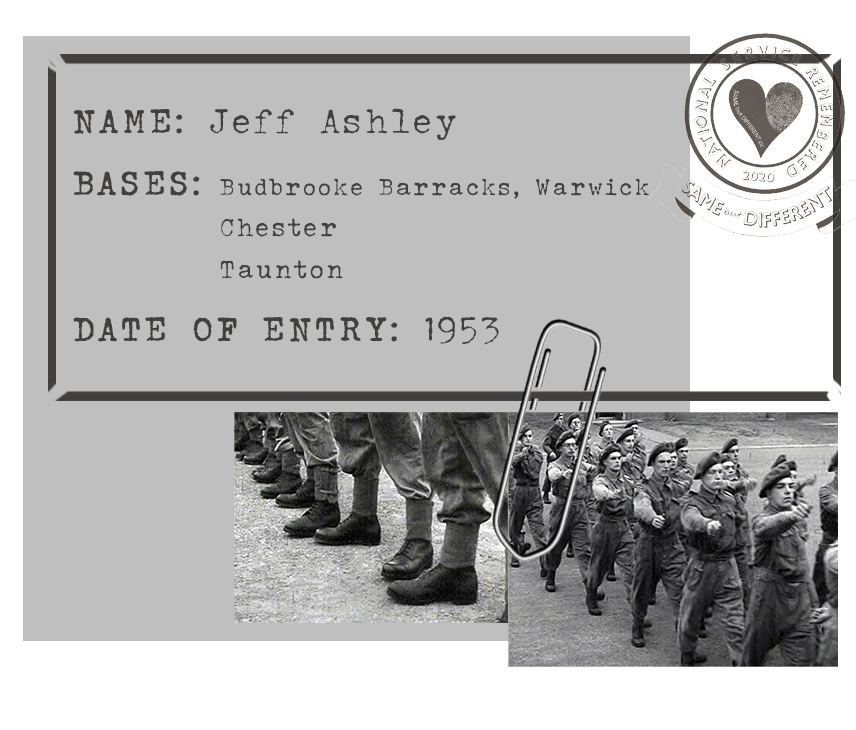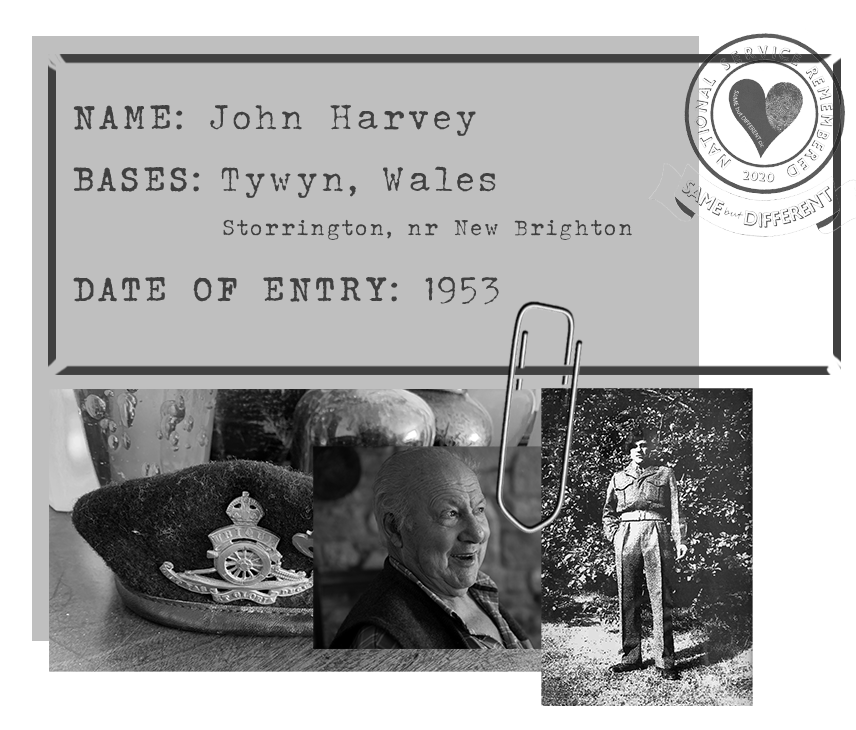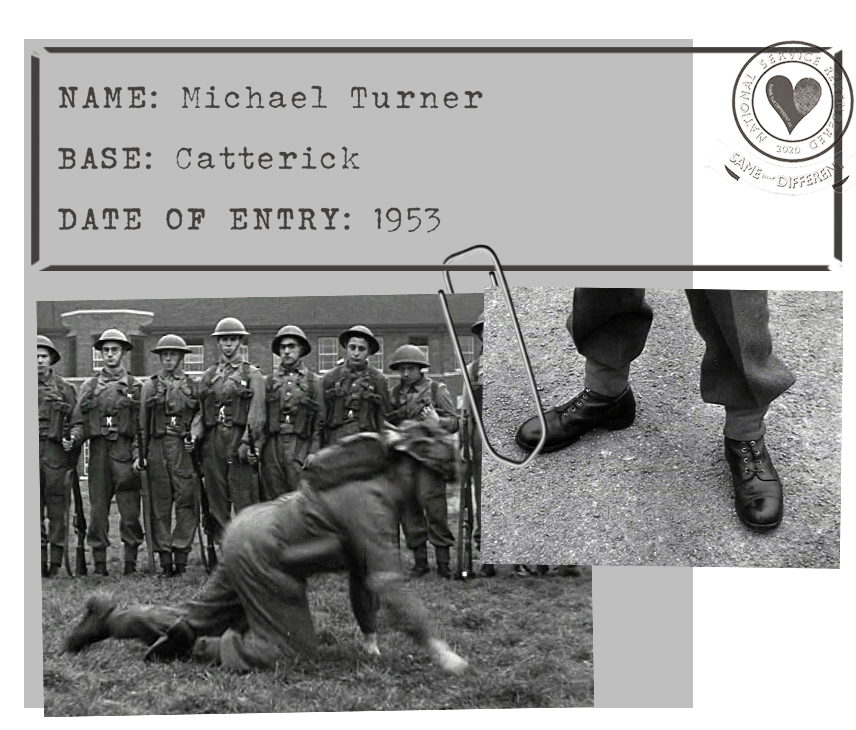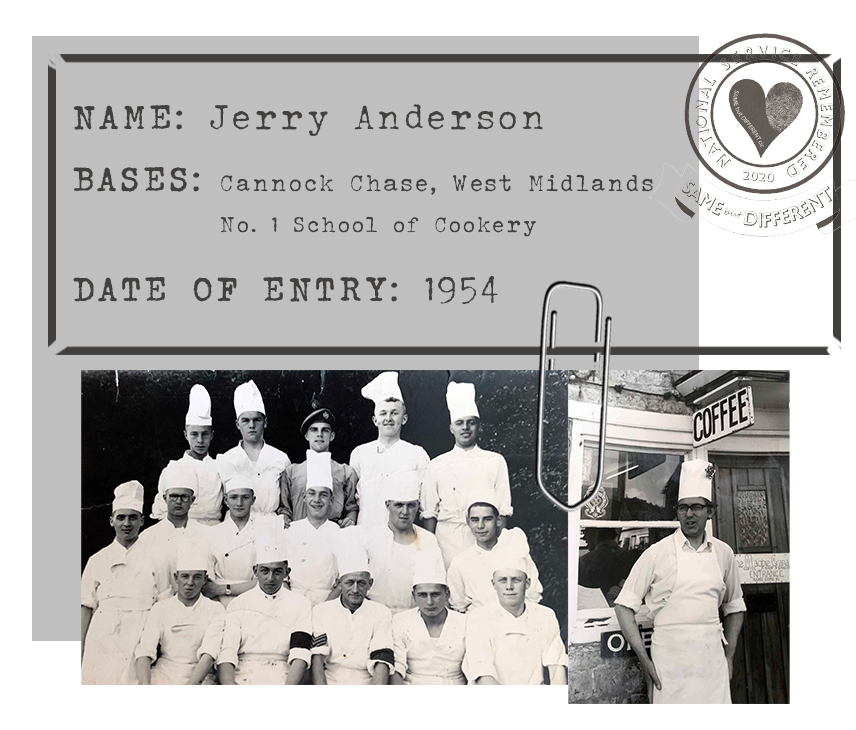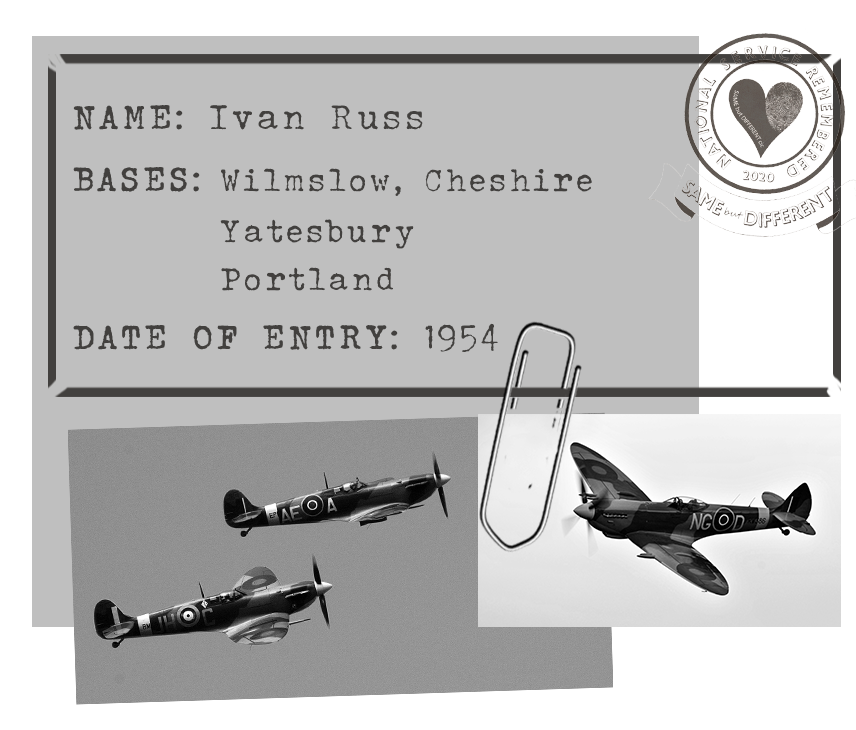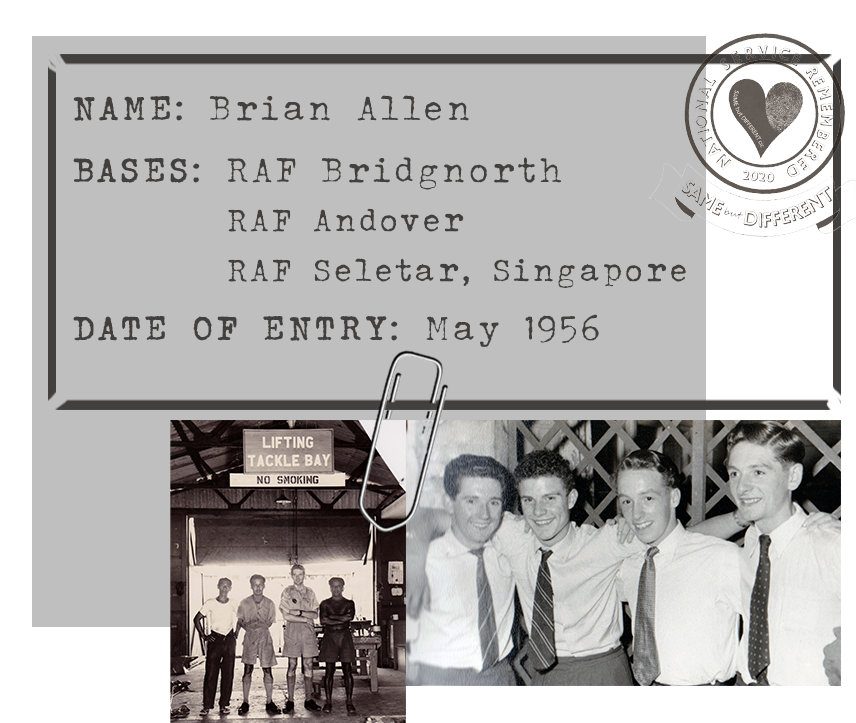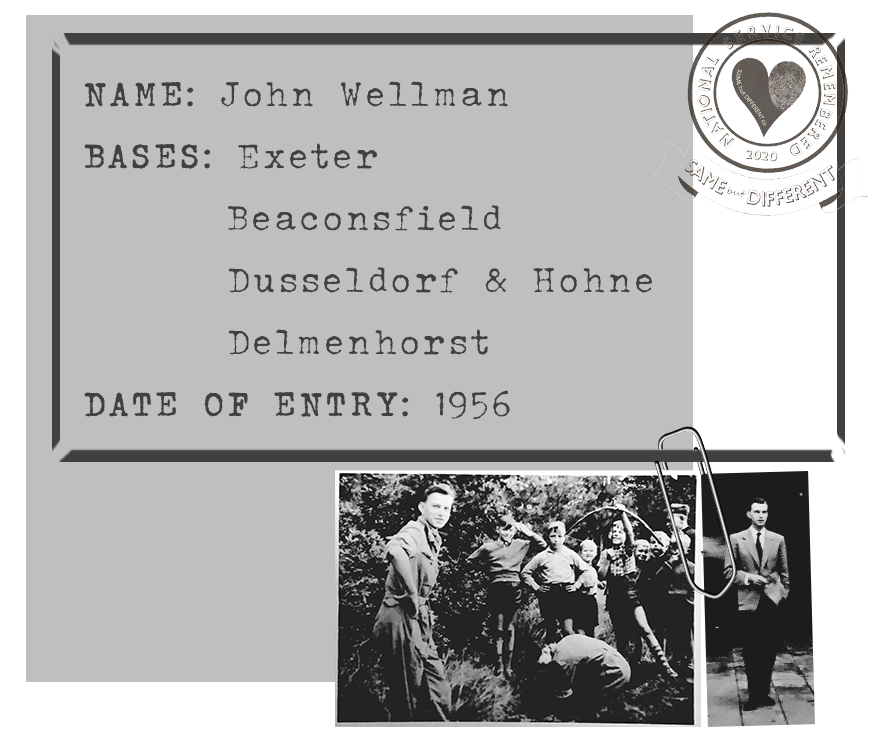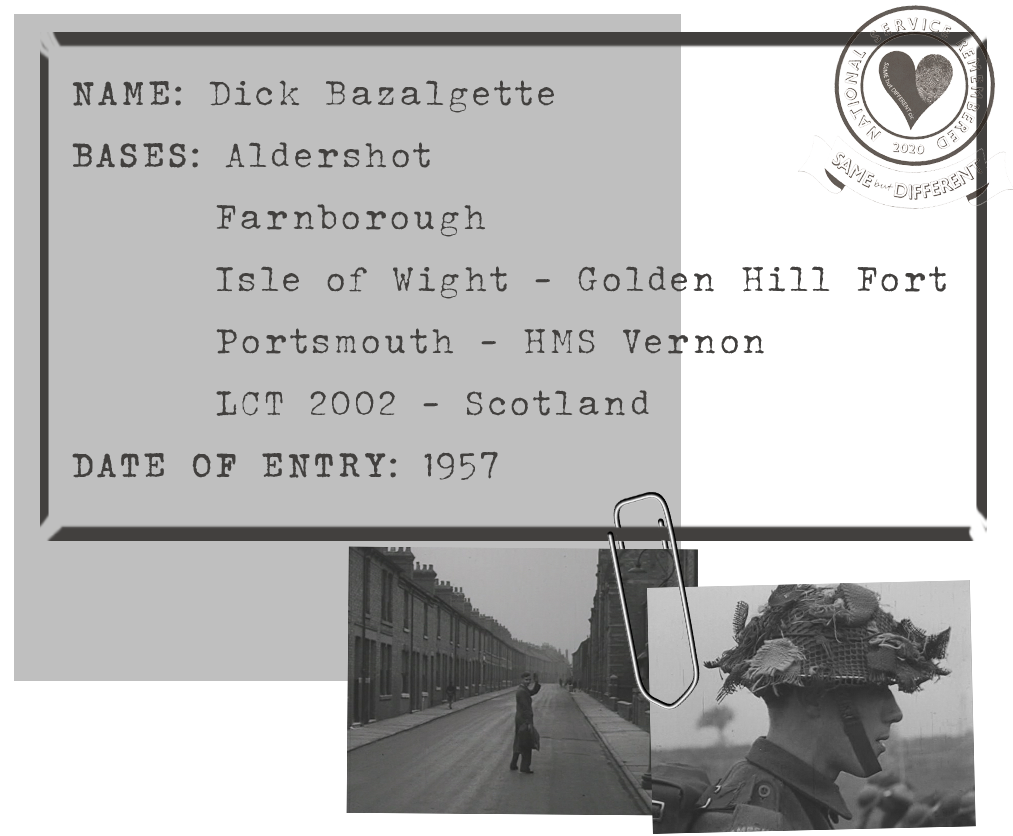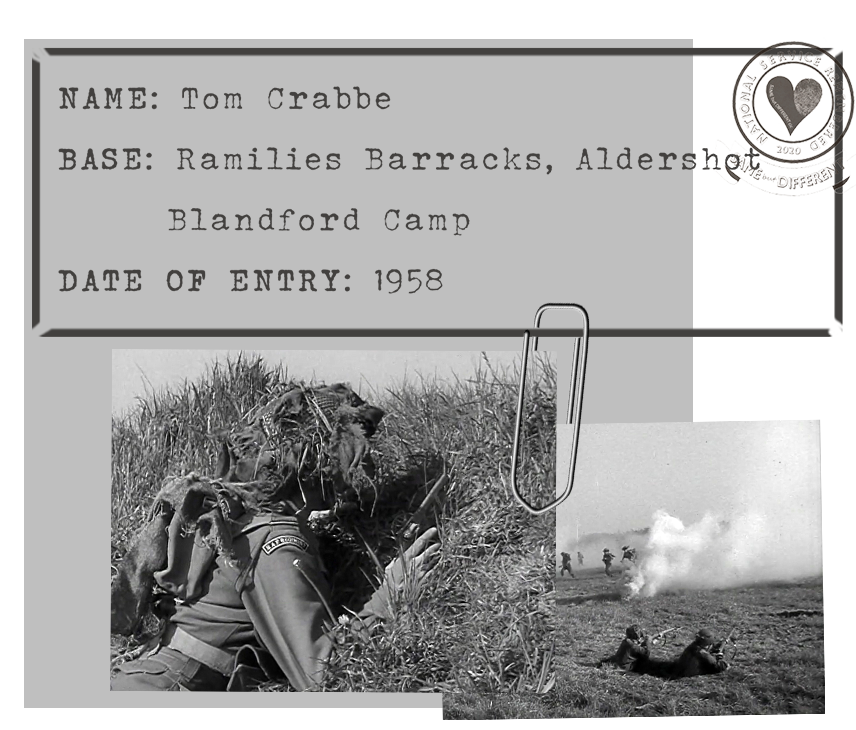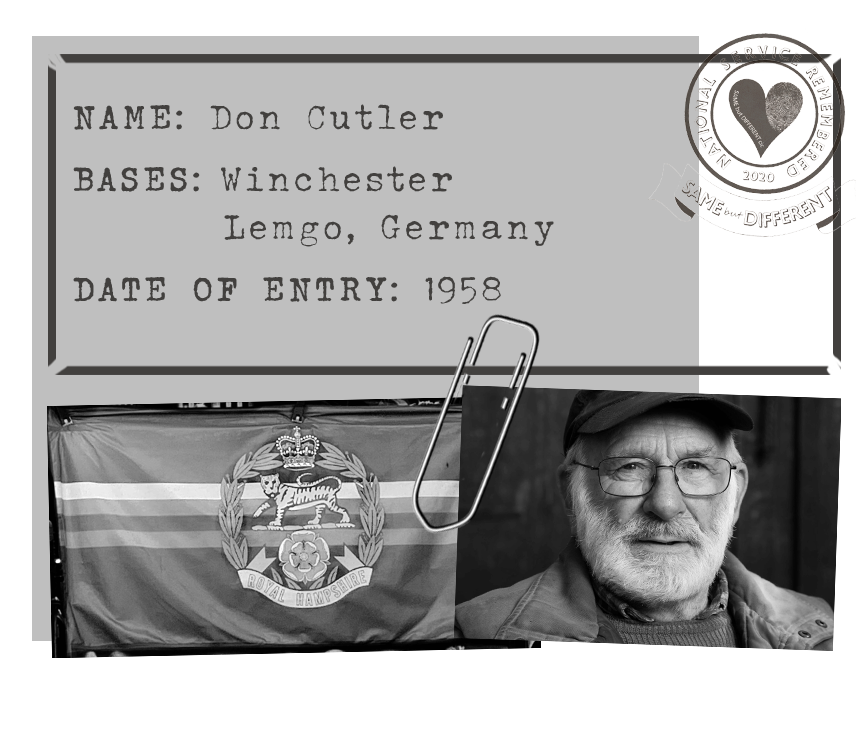I was born at home in 1938 and was an only child.
My Granny lived with us and my auntie looked after me when mum was working so I grew up surrounded by ladies. I was very upset when I left for the army and there were a lot of tears on the train when I got on the platform at Blandford to say cheerio to my mother and my auntie.
My National Service started in September 1958 when I went for a medical in Salisbury. I then passed another medical in Southampton and got my call up papers. I went in the army on the 4th December 1958. I was deferred because I was 20 and I'd done a five years’ apprenticeship as a Carpenter and Joiner at a local building firm. I got on the train at Blandford, changed at Templecombe then got on the mainline to Waterloo and down to Aldershot, Ramilies Barracks, 6th Catering Corp. We were met with a very strict Sergeant major there, who showed us all round and we had cups of tea and a bit of cake. Then we were shown to our rooms with a lot of shouting and hooting and we were a lot of frightened little boys. We didn’t know where we were going wrong or what we were coming into.
“Then we were shown to our rooms with a lot of shouting and hooting and we were a lot of frightened little boys. We didn’t know where we were going wrong or what we were coming into. ”
It was chaos really, there was 250 of us and we didn't know anybody.
Everybody had a job in the morning to either brush up the floors and clean out the fire and make sure there were no red embers in the fire. The food was diabolical! But it was all about discipline. On the second day we were all kitted out with uniforms. We had three pair of boots and two vests, 2 pairs of pants, some long Johns if it was cold, but we didn’t use them often. And then you had your BDs (Battledress) and denims, and we had a beret each, tin hats and all the haversacks and ammunition pouches. All of that had to be folded up and put up on top of the lockers every day, and if it wasn't cleaned when they did the CEO inspections once a week, it would be knocked off and thrown all over the floors. You had to go round and pick it all up, humiliated, and start all over again. It was very hard going for the six weeks, but it didn't hurt us. We moan and groan, and were upset leaving home, but it didn't hurt us at all.
On Sunday afternoons, to take our minds off being lonely and not at home, and it was supposed to be a recreation day, we used to scrape the blooming floors with razor blades to get the lyno clean and bumper it up with polish. All of us were on our hands and knees in the barrack room doing that for about 3 hours. It was awful. Then we’d rub it over with newspaper rolled up into balls.
We were up at 5.30am running in full kit and hobnail boots with our rifles, before breakfast.
If you were lucky, you’d get an egg, but if you didn’t get there in time, it was a piece of bacon and a piece of bread soaked in horrible fat. And that was about it.
After about 8 weeks we had our passing out parade. My parents, and Brenda, my wife, who I was courting at the time, couldn’t afford to come to Aldershot for the parade but it was wonderful. 250 of us plus the band and we all had fixed bayonets, it was a wonderful sight. 99% of us were ordinary working people so our parents couldn't come because they didn’t have cars.
We were then posted to a cooking school. Fortunately, they opened a cooking school at Blandford Camp during that time. It was a transitional camp for boys training to be cooks before being posted out to different regiments all over the world. But when they asked for volunteers to go and get the camp ready at Blandford, several of us from Dorset put our hands up to come back home, which was wonderful. We had six weeks getting the camps ready and doing all the barracks, getting all the beds and lockers in.
The first lot of trainee cooks came in which we should have been a part of but then they asked for volunteers to stay as permanent staff, which I did. They then wanted a unit Carpenter and so I had to go before the CEO in his posh uniform, to be charged as a unit Carpenter. There were 18 of us permanent privates and corporals and we stayed for around 20 months working on the barracks. The barracks were spiders, toilets were in the middle with the washrooms and you had three barrack rooms either side. There were 30 in a barrack room, so 180 young soldiers in these spiders. They were all wooden and we had central heating which wasn't all that good. And then after a few weeks in the barrack rooms with the rest of the soldiers, we all had our own private rooms, which was wonderful. I only lived 6 miles away so I used to get home quite a lot.
“|f you didn’t get there in time, it was a piece of bacon and a piece of bread soaked in horrible fat. And that was about it.”
It got really busy and so I said to the CEO ‘Sir I could do with some help’.
He asked if I knew another carpenter in the unit and I suggested Private Daniels, who was due to be posted to the Royal Engineers. The CEO put him on orders and we’ve been friends ever since. We’re still friends now and he lives in Gloucester. We used to have cooking competitions every year at the Blandford Camp and we had a wonderful time. I did my last four month in Aldershot and got demobbed on 4th December 1961.
We used to do guard duty all night, every three weeks. 250 troops would come from Aldershot after their basic training and do 16 weeks at the cooking school. Once they'd passed their exams, you’d get three different sections of cooks: B1s, B2s and B3s. B1 cooks were hospital cooks, B2s were officers’ mess cooks and B3s were posted out to regiments all over the world. There was about 600 catering corp training and moving on from Blandford Camp and then on the other end of the camp was No. 1 training Battalion R.E.M.E. And then the other end was where we used to get our transport, we didn't have any transport in the catering corp, so we had a driver every day. I used to have to sign the tickets for him to come down. He would arrive at out 9am with the lorry and then the lorry was ours for the day and we used to go to Bulford Camp and get rations and pick up timer for the camp. When the Dorset Regiment was amalgamated with the Devonshire Regiment and the barracks were closed at Dorchester, we had three months down there clearing all the barracks out, about five of us from Blandford camp.
I met some nice chaps.
I've got another friend I was in the army with who I met on the train that day and we see one another once or twice a year.
National Service gave an insight to the way other people lived. It taught you to respect your elders, which sadly is not done nowadays. It was a wonderful way of life.
When you were demobbed, if you had done an apprenticeship, the firm had to take you back for a year. I worked there for 10 years and then left to start my own building business.
I did regret not going abroad, we could have gone to Oman for 18 months.
It took about six weeks to get settled back in civilian life but at the end of the day it was ok and I had a good life, and was very lucky with my health.


